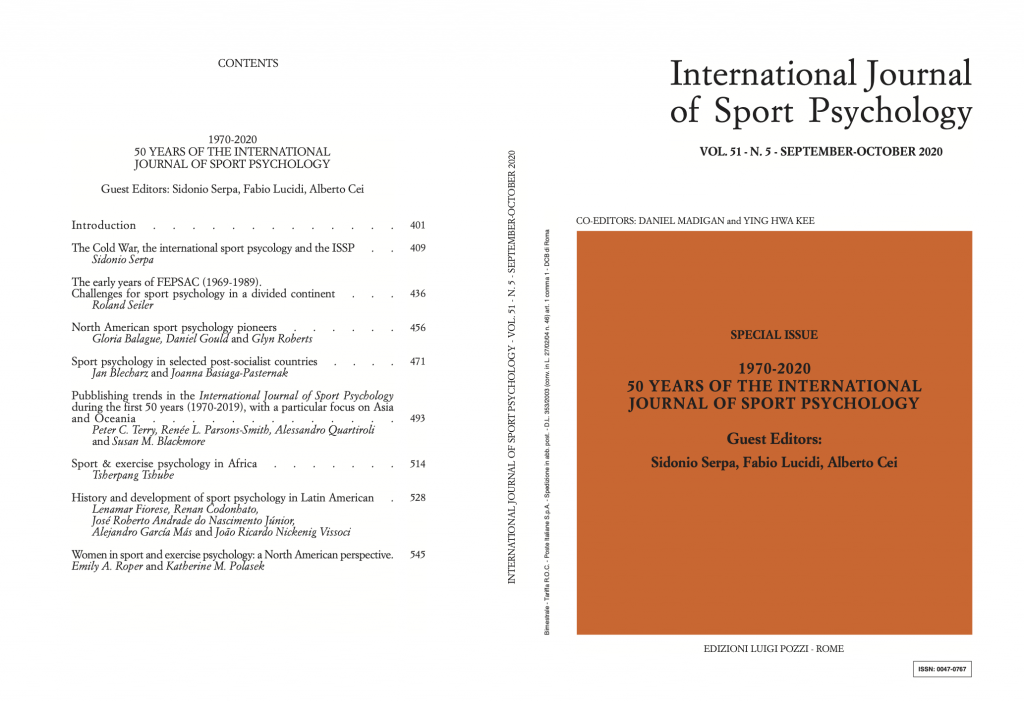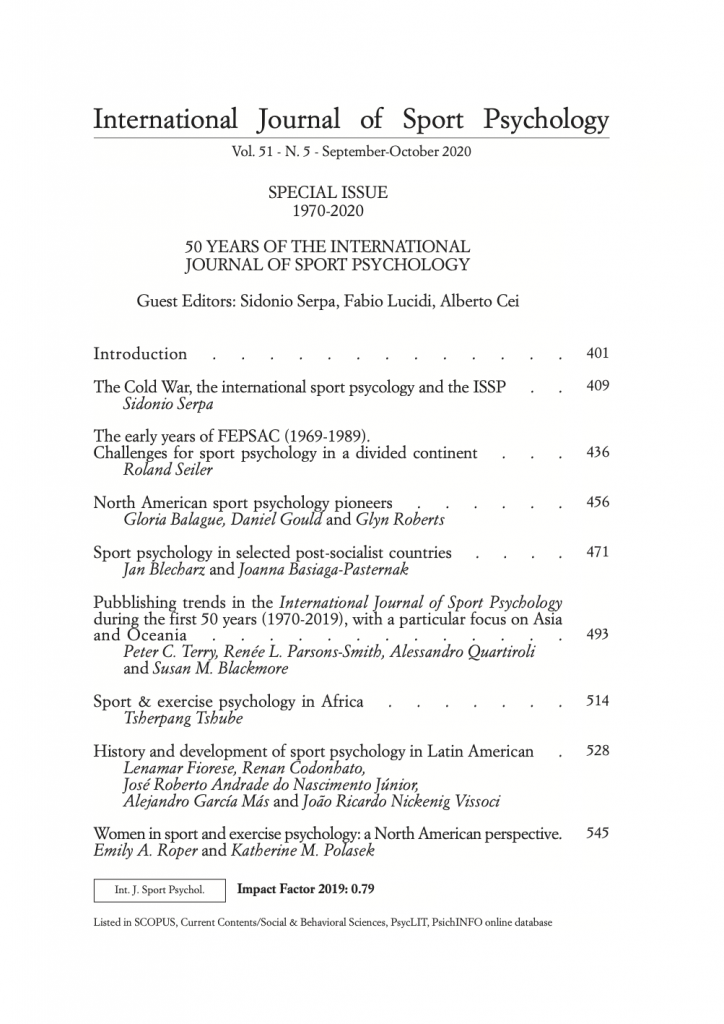On the occasion of the 50st Anniversary of the International Journal of Sport Psychology and
the publication of next special issue dedicated to the history of sport psychology from the 70′s up today by Sidonio Serpa, Fabio Lucidi and Alberto Cei.
We want to highlight how at the beginning of the 70s, the affirmation of this discipline in the world of absolute sport performance was very limited. To a large extent athletes did not follow psychological preparation programs and psychologists did not attend in the most important events such as the Olympics.
At the end of the Olympic Games in Munich -1972, Ferruccio Antonelli addressed many psychologists asking “to write some short observations under psychological point of view“. Nine sent a short commentary and were published in No. 2, 1972 of the Journal.
The historical value of this initiative by Antonelli and of remembering it today, consists in documenting how the affirmation of the sport psychology applied to high-level sport has been a long and slow process. And it took about 15 years to have at Los Angeles – 1984 Olympic Games a significant number of sports psychologists on the Olympic teams.
In general, the comments denounce the lack of attention to psychology by sports organizations and sports medicine.
J. Cratty (USA), p.99:
“During the Pre-Olympic Scientific Conference, I was questioning daily why there were no psychologists accompanying the American Team. A question which I couldn’t answer, and which proved personally unsettling, particularly, when viewed in the light of subsequent performance and incidences… it is hoped that in future games trained professionals to offer emotional support for athletes will be as common as are the presently available personnel for their physical health.”
J. Ferrer-Hombravella (Spain), p.100:
“Beaucoup d’observations a Munich nous prouvent que les bases de la psychologie du sport sont ignorées par beaucoup de personnes et beaucoup des médecins sportifs inclus.”
H. Rieder (German Fed. Rep.), p.103:
“Sport continues to regard psychology exclusively as a spectacular means of improvising performance without showing any interest in an unconditional and willing cooperation as far as the rather troublesome work of conducting tests and evaluating empirical data is concerned.”
M. Vane (Czechoslovakia), p. 105-106:
We need “Individualization in the care of the competitor (guidance) starting with his education and self-education and ending with intentional psycho-prophylactic, psychoigienic and psycho therapeutic means … it is necessary to point out the development of individualized techniques of cool-up and warm-up directed to an optimization of activation level of the athlete. Th advantage of a cooperation between coach, physician, psychologist and masseur is the evident.”







